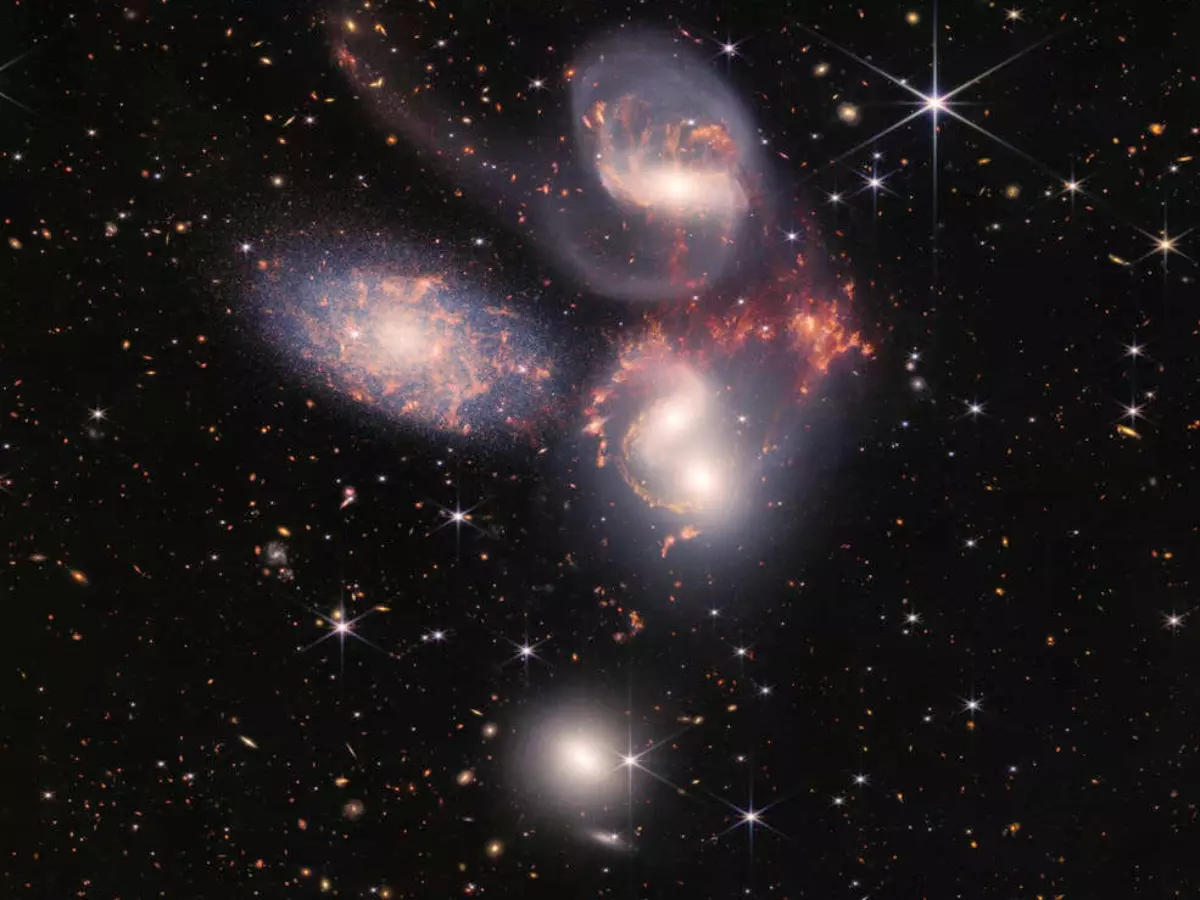Five New Images By James Webb Space Telescope Show Distant Universe In Unreal Detail
Earlier today, we got a sneak peek at what NASA's revolutionary James Webb Space Telescope has in store for us. With vivid details and clarity like we've never seen before, James Webb has brought humanity closer to seeing distant universe like we've never seen it before.

Earlier today, we got a sneak peek at what NASA's revolutionary James Webb Space Telescope has in store for us. With vivid details and clarity like we've never seen before, James Webb has brought humanity closer to seeing distant universe like we've never seen it before.
The first suite of colour images, along with spectroscopic data were released starting 8 pm IST on July 12, 2022. With these images, the James Webb Space Telescope has kicked into action. What does space look like through the world's most powerful and largest space telescope? Keep reading to find out.
The Carina Nebula
This stunning burst of colours almost feels like a painting. But it's not, in fact, it's a testimony to how powerful James Webb Space Telescope is. NASA described the image as a landscape of "mountains and valleys speckled with glittering stars." It is situated at the edge of a star-forming region known as NGC 3324 in the Carina Nebula.
 NASA
NASA
The image was captured in infrared light by James Webb Space Telescope, and revealed invisible areas of star formation for the first time. The picture is titled "Cosmic Cliffs" and NASA claims that the tallest "peaks" in this image are at least 7 light-years high.
Stephan's Quintet
Stephan's Quintet is a grouping of five galaxies, now available in detail never seen before. "This enormous mosaic is Webb¡¯s largest image to date, covering about one-fifth of the Moon¡¯s diameter," NASA wrote.
 NASA
NASA
Also read: 7 Crazy Facts About NASA's James Webb Space Telescope That Will Blow Your Mind
The image contains about 150 million pixels and was created from 1,000 separate image files. "With its powerful, infrared vision and extremely high spatial resolution, Webb shows never-before-seen details in this galaxy group. Sparkling clusters of millions of young stars and starburst regions of fresh star birth grace the image," NASA wrote. In addition, Webb captured huge shock waves from one of the galaxies, NGC 7318B smashing through the cluster.
Southern Ring Nebula
We are in complete awe! James Webb Space Telescope revealed for the first time that the dimmer star at the centre of South Ring Nebula has been covered in dust.
 NASA
NASA
The Nebula is officially called NGC 3132 and is situated about 2,500 light-years away from Earth. "Webb will allow astronomers to dig into many more specifics about planetary nebulae like this one ¨C clouds of gas and dust expelled by dying stars," NASA wrote.
WASP-96 b
The James Webb Space Telescope has found peculiar signatures of water, along with evidence for clouds and haze in the atmosphere of a hot and puffy gas giant planet that orbits a Sun-like star far away.
 NASA
NASA
Also read: Spooky Blue Remains Of An Ancient Cosmic Explosion Captured By NASA In New Image
"The observation, which reveals the presence of specific gas molecules based on tiny decreases in the brightness of precise colors of light, is the most detailed of its kind to date, demonstrating Webb¡¯s unprecedented ability to analyze atmospheres hundreds of light-years away," NASA wrote.
SMACS 0723
The first image clicked by James Webb Space Telescope was shared earlier by NASA and is considered the deepest and sharpest infrared image of the distant universe to date.
 NASA
NASA
Also read: Sharpest Image Ever Of Our Universe Has The Internet Awed, Scared, And Curious
It is officially known as Webb's First Deep Field and shows thousands of galaxies, even the faintest ones. "This slice of the vast universe covers a patch of sky approximately the size of a grain of sand held at arm¡¯s length by someone on the ground," NASA wrote.
What do you think about these cosmic stunners clicked by James Webb Space Telescope? Let us know in the comments below. For more in the world of technology and science, keep reading Indiatimes.com.
